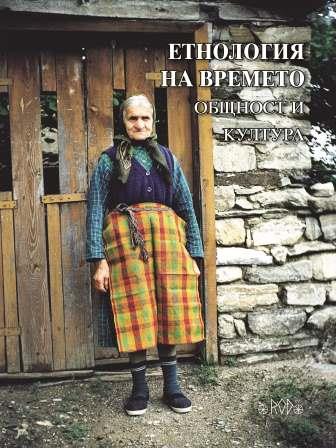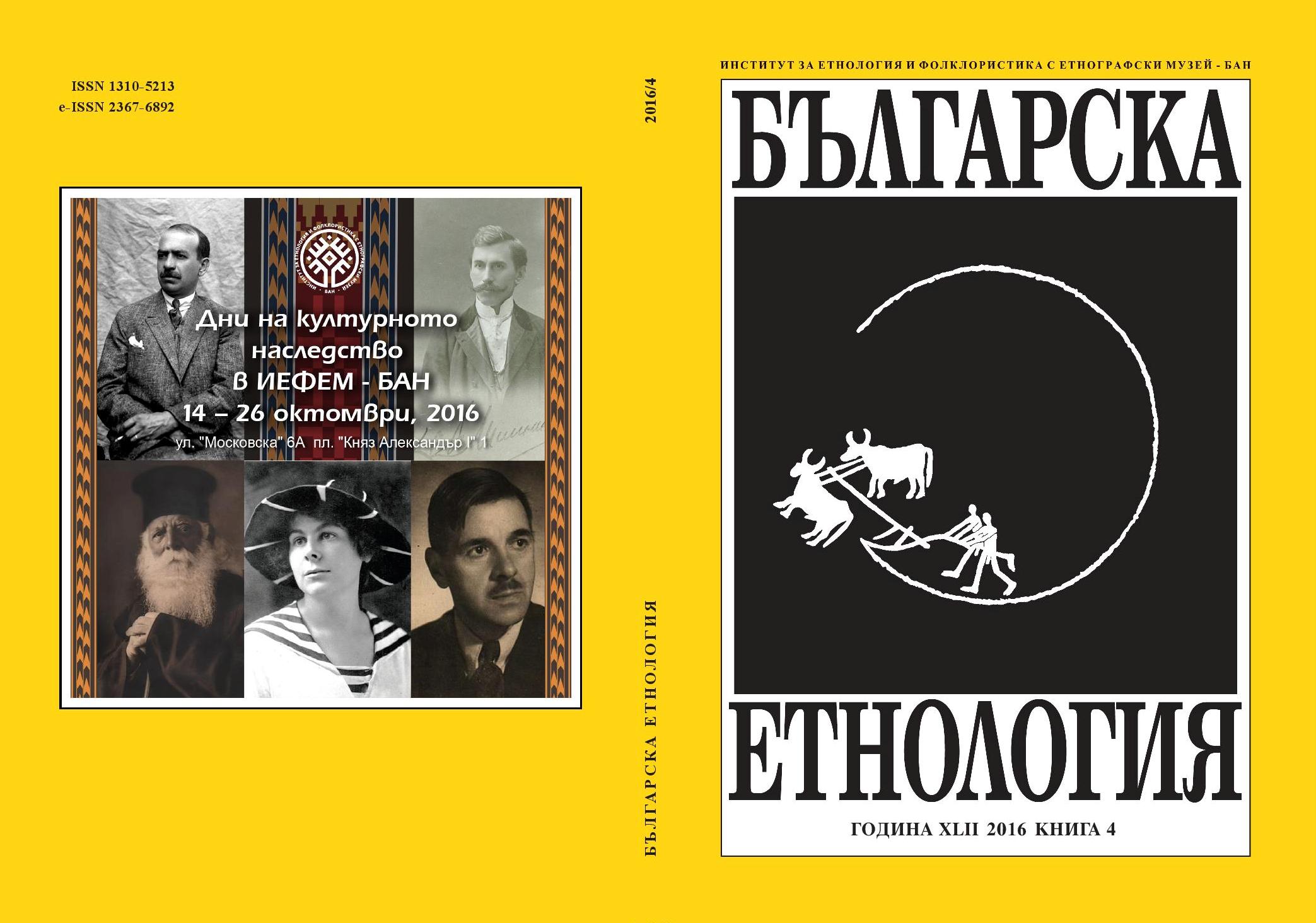
We kindly inform you that, as long as the subject affiliation of our 300.000+ articles is in progress, you might get unsufficient or no results on your third level or second level search. In this case, please broaden your search criteria.

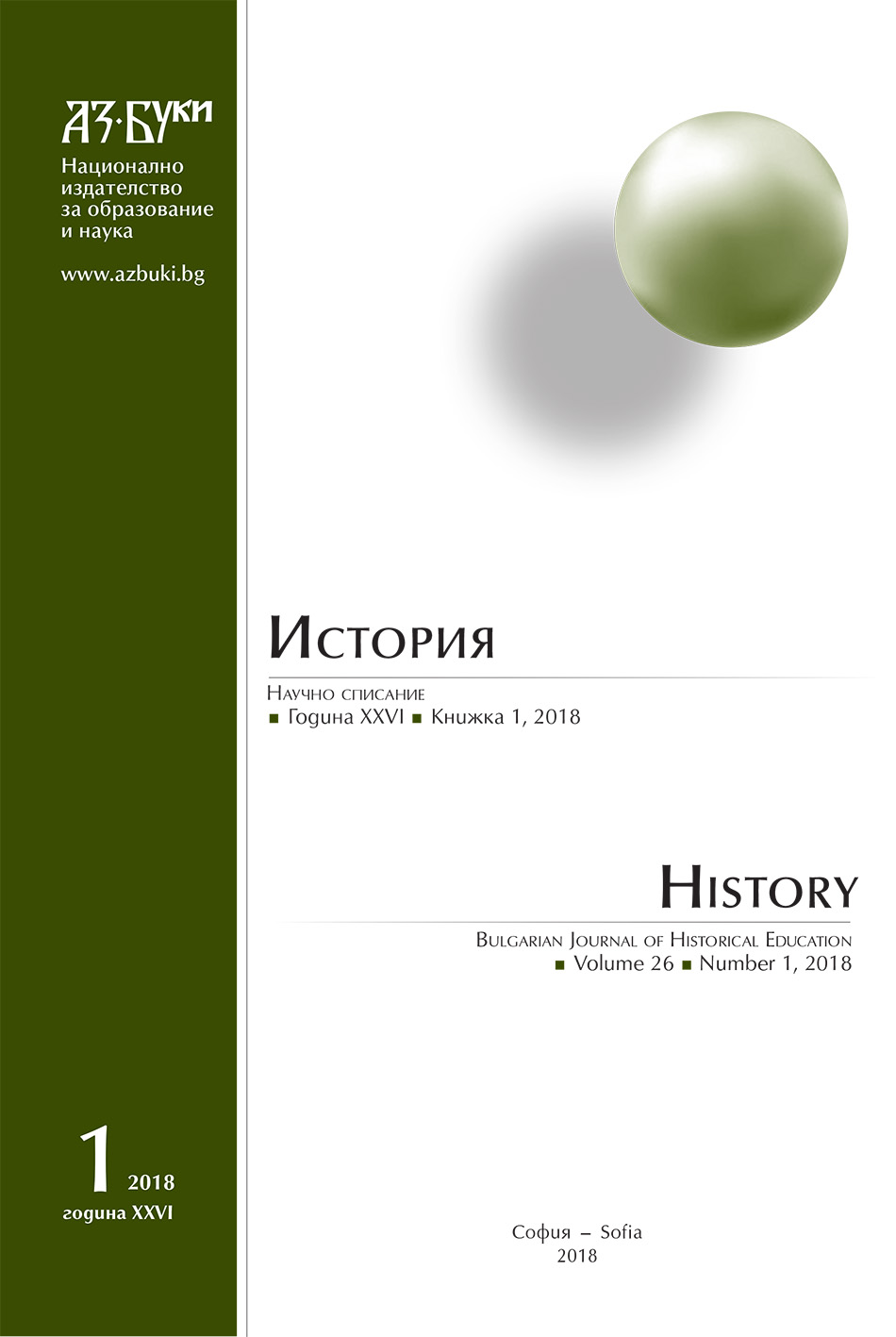
The article seeks to ascertain whether and to what extent the state policy of “care” and “protection” of the family, woman-mother, children and youth in the period of socialism in Bulgaria is the result of the paternalism and populism typical of the Bulgarian socialist model.
More...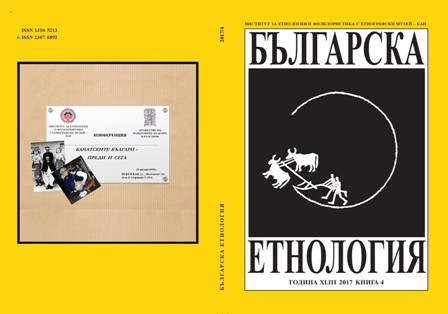
The objective of this article is to outline the basic tensions in contemporary Bulgarian society concerning the intertwining of religion and secularism through the prism of relations between national state and different religious organizations and individuals.The general goal is to combine the presentation of national historical context, existing legislation and the current social debate based on anthropological fieldwork.
More...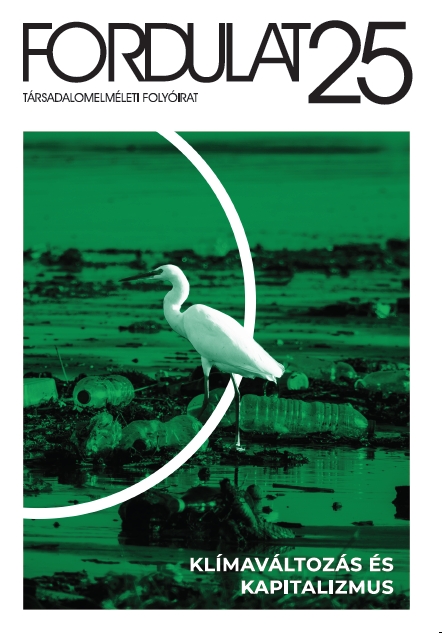
Rebecca Solnit has published her book "A Paradise Built in Hell" ten years ago. Its main idea was originally formulated in 2005 in an essay published on the day when Hurricane Katrina reached New Orleans. Rebecca Solnit is writer, historian and activist living in San Francisco; she has been working in various environmental, anti-war, human and women's rights movements since the 1980s. She has published 17 books so far and is a regular author of Guardian and Harpers' Magazine. In her works she continues the tradition of American progressive public intelligentsia: although she relies on historical facts and social science research, she primarily outlines perspectives to expand sociological imagination (Mills 1959) on challenges that cannot be solved by the social knowledge produced within the current social order.
More...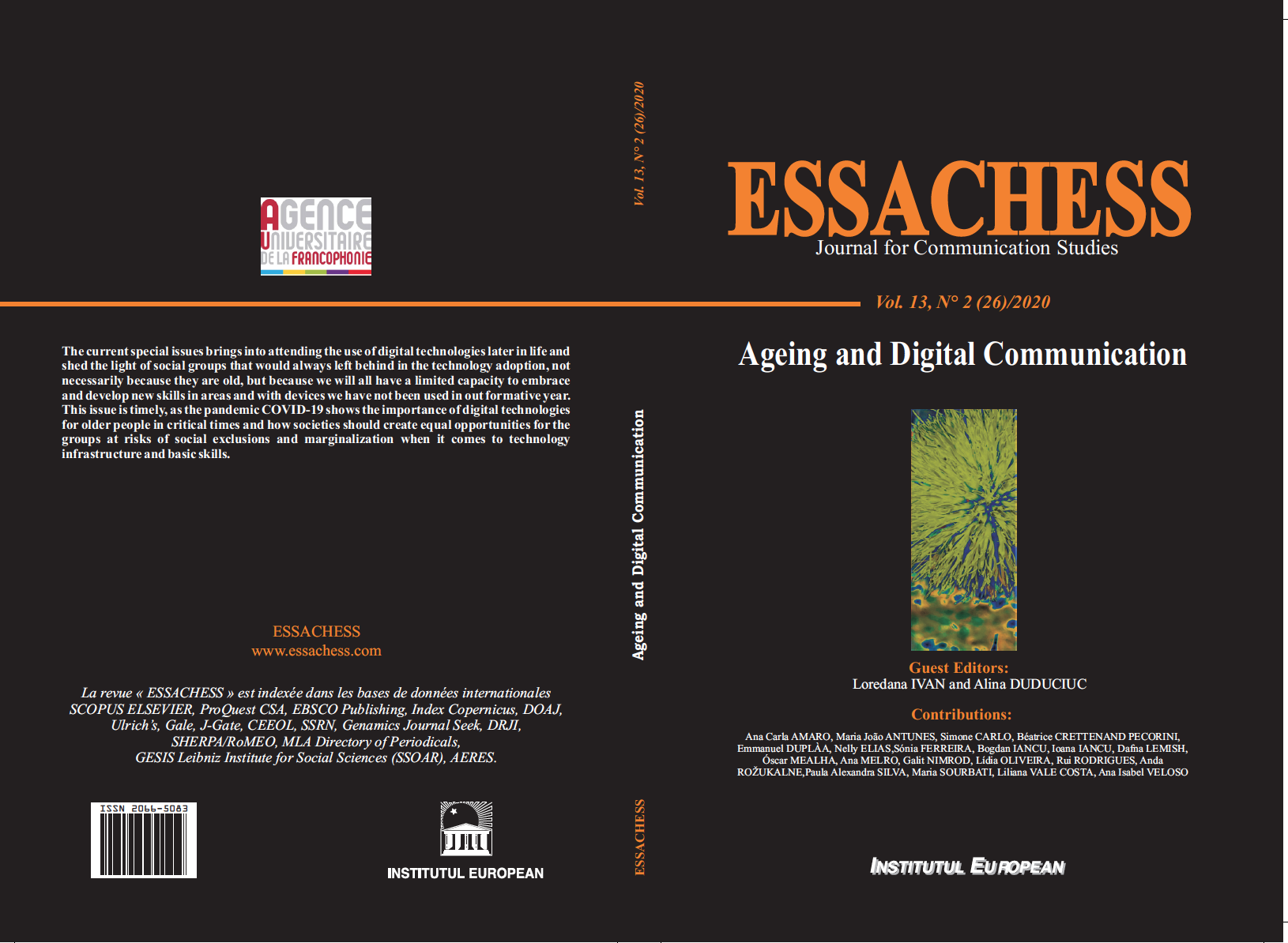
In the context of constant population aging, digital technologies are required especially for communication and geriatric care. However, before a large-scale deployment could be implemented, the general technological acceptance level should be assessed. The paper aims to descriptively analyze the perception of aging adults on mobile technology. Based on Technology Acceptance Model (TAM), the variables considered are emotional attachment on technology, actual use, perceived ease of use, perceived usefulness, and behavioral intentions. Methodologically, a set of semi-structured interviews have been conducted. The results show that although individuals love their mobile devices and although they perceive them as being useful, the devices are not easy to be used and there are numerous concerns regarding technology. Paradoxically, while they claim the like owning smart devices, they consider them too complex and intrusive.
More...
The increase of computer-mediated communication use and the aging population has led to a renewed interest in online communities and social networks for active aging and social support in daily living. However, a systematic understanding of the design recommendations in Senior Online Communities is still lacking in scientific documentation. The aim of this paper is to identify the design recommendations used in online communities that support active aging. In addition, this paper highlights some of the benefits of using online communities by older adults. Twenty-three papers published between January 2015 and May 2020 in English-language, peer-reviewed publications, met inclusion criteria. The review presents a set of recommendations for designing online communities to enhance older adults’ social interactions. A process that aims for “engagement” is suggested to strategically guide the design of Senior Online Communities: Interacting – Sense of Belonging (Role-playing, Storytelling, and Legacy) – Engaging.
More...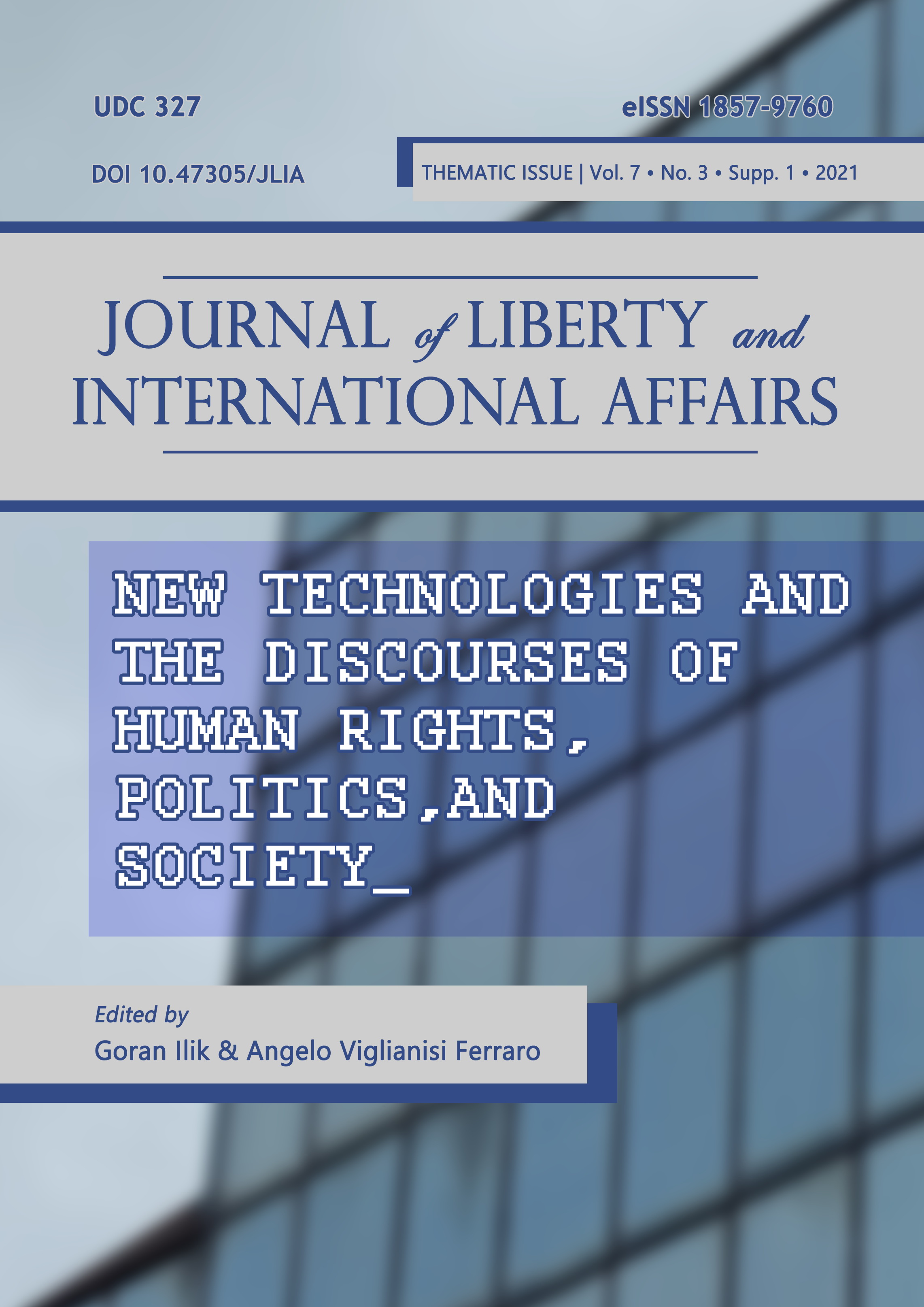
Modern societies are associated with the constant flow and acceptance of information and communication technologies at home, in the workplace, in the process of education, even in recreational activities. The development of new technologies has not only challenged human rights, but also politics and society in general. Even more importantly, this new technological level has also empowered transnational corporations operating in the digital environment as hosting providers to perform quasi-public functions in the transnational context. New technologies have the potential to make significant positive contributions to the prevention, promotion, and protection of human rights and democratization, decentralization, and digitalization of politics and the advancement of society as a whole.
More...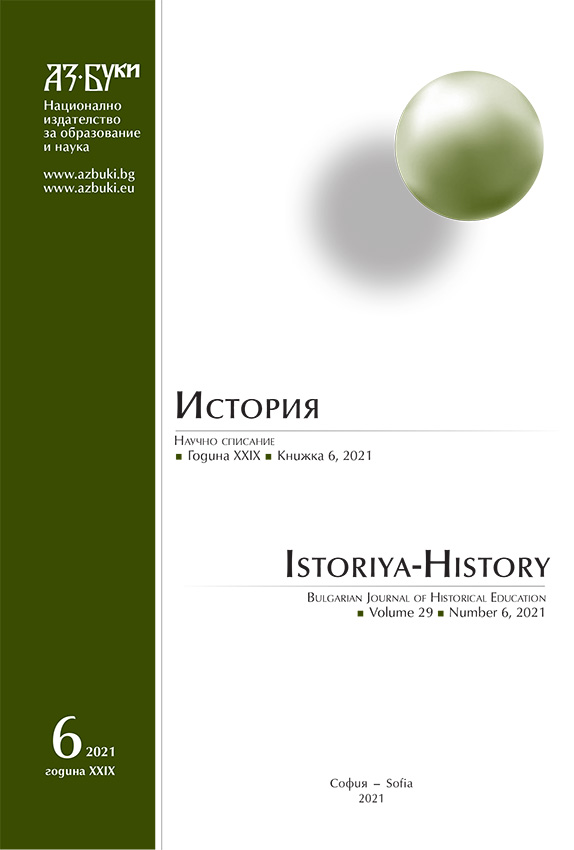
Based on the analysis of the sources and academic literature, the article comprehensively presents a critical analysis of the activities of the Bulgarian Blagoev Commune. The article covers the details of the organisation and functioning of the collective, the tasks set by the Bolshevik authorities. The article characterises the process of adaptation to a different country, the relations of the members of the commune with the local population and ties to Ukrainian associations. The results and consequences of the economic and financial activities of the international commune on the territory of Ukraine are generalised. The authors draw attention to the fact that the conscientious work of the members of the commune was used by the political regime under the slogans of building a bright future for the sake of an unrealistic socialist goal. Special focus is put on the party and public activities of the members of the commune. The contradictory nature of the position of the Soviet government regarding the newly created collective, the evolution of its party and state policy and the tragic fate of the leadership of the commune in the 1930s are discussed. The article outlines the recommendations on the practical application of the historical experience of the international collective in the context of international cooperation.
More...
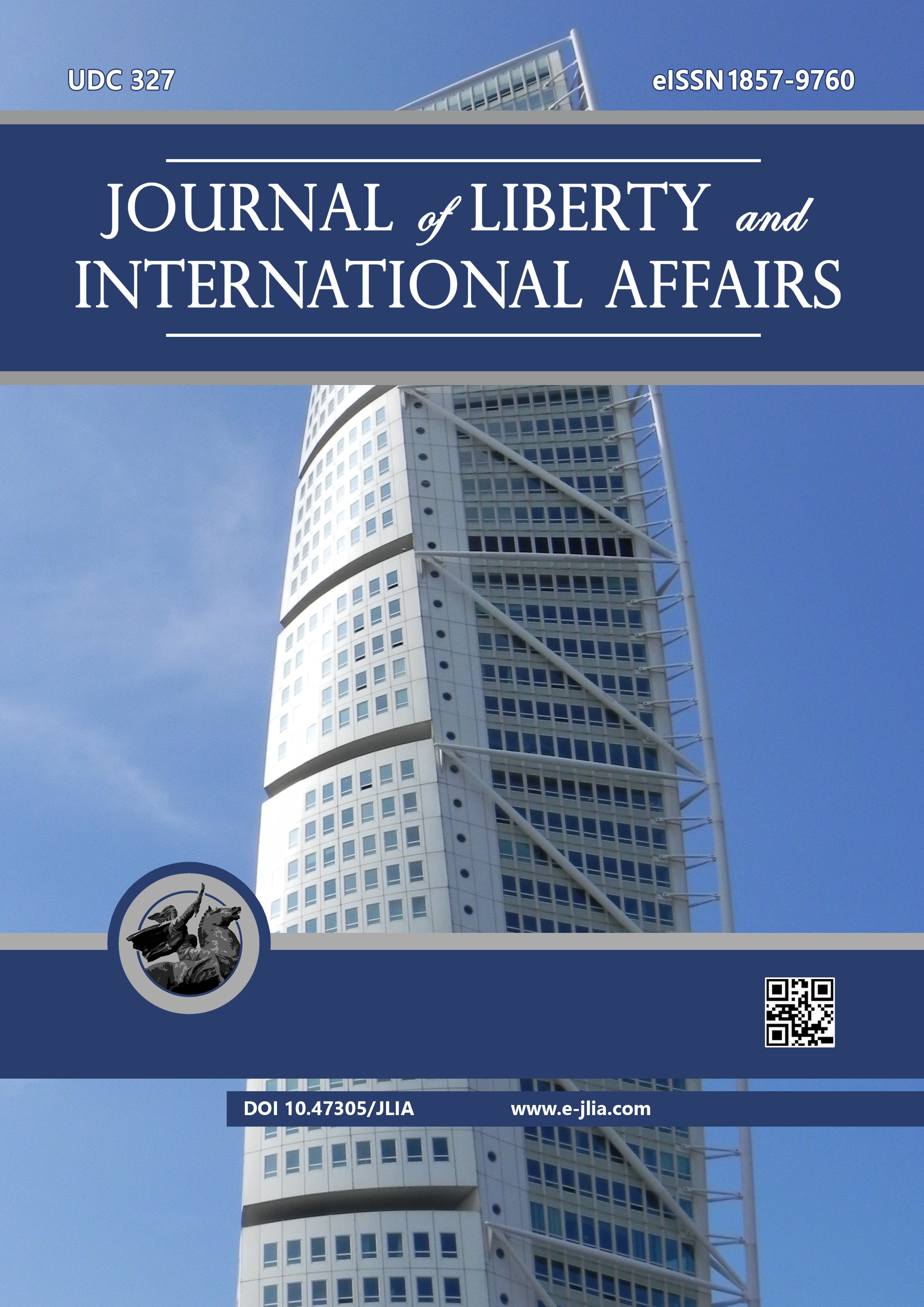
This research aimed to analyze the Albanian parliamentary elections held in 2013, 2017, and 2021 in order to evaluate the process of development of representative democracy in Albania, one of the post-communist countries of the Western Balkans. The analysis was based on assessing the dynamics of the Electoral Integrity Index (PEI) as a quantitative indicator that reflects the level of fulfillment of international standards for democratic elections. The PEI was evaluated using the average perception values for 11 indicators reflecting the election process. Based on the value of the PEI2013 (54.1 scores), PEI2017 (53.3 scores), and PEI2021 (57.7 scores), the parliamentary elections in Albania were considered as processes that do not exceed the ‘moderate’ level. The non-significant difference between 2013, 2017, and 2021 PEI (p>0.05) demonstrated low progress in developing democratic performances in Albanian society.
More...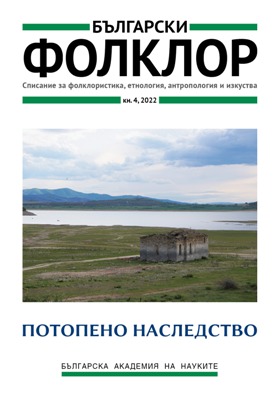
The text introduces in the problem of a collective research on the settlements obliterated during the construction of dams in Bulgaria, making an attempt at a terminological discussion. Based on the examples of the cultural practices of village commemorations, of the narrative patterns of fellow rural communities, and of the intimate gestures of connecting family memory and public spaces, different kinds of optics to the phenomenology of loss are proposed. The submerged as a particular case of lost heritage is in opposition to the heritage of loss, which is valorised as a value in the intergenerational discourse. Efforts are made to interpret the submerged and obliterated village not only as a lost place, but also as an irretrievably lost world. The cultural landscape is correlated with the landscape of memory – all this on the example of one of the most popular dams and the submerged village of the same name – Zhrebchevo.
More...
Choosing a name is an important part of the construction of significant infrastructural projects, such as dams. Naming is not only a utilitarian procedure of individualizing a concrete space, but also a symbolic act that gives value to a specific name and transforms it in a cartographic and geographical “site of memory”. The selected name is picked out among other possible variants and is thus the result of a choice that implies an intention or at least a mental attitude. The article attempts to reconstruct the logic underlying the naming of Bulgarian dams.
More...
The resettlement of the inhabitants of the village of Bara, Bulgaria, due to the construction of the ‘Aleksandar Stamboliyski’ Dam prolongs from 1942 to 1953. During this long period, social and economic life in the village is marked by uncertainty. A number of unpredictabilities, caused mainly by political and economic factors, hinder people from making informed choices and adequate decisions. My research interest is focused on the context that produced uncertainty and on resettlers’ worries. The reconstruction is based on archival documents dealing with the resettlement; they include also local complaints.
More...
The article analyses the plot-motive content and genre structure of the oral narratives (memories) about the submerging of the Don stanitsi [stations] in connection with the construction of the Tsimlyansk Dam in the middle of the 20th century. The focal points of the narratives about submerging are: the loss of the ‘small homeland’ as a result of the catastrophe, the eschatological experiences, the miraculous ‘return’ of the submerged territories and objects (in visions and in reality, depending on natural phenomena). The narratives about the submerging from the Don region demonstrate a typological similarity with texts from other regions of the former USSR, which allows us to speak of a separately developed genre of modern verbal folklore.
More...
I explore the connections between a particular place that was created by a natural agent (the Yantra River) and an artificial object (the ‘buna’), and the activities by which local people gave the place a specific character. I highlight their past actions and experiences; remembering, recounting and evaluations in the present; the emotional attachment to the place and the ecological nostalgia after its ‘loss’ due to hydro technical intervention.
More...
This empirical study presents the results of a field research in the town of Elena and other settlements around the ‘Yovkovtsi’ Dam. The content presents fragments of an interview with Sava Kovachev, one of the hydro-builders of the ‘Yovkovtsi’ Dam. The proposed text includes our interlocutor’s memories about his first workday at the dam; brief descriptions of several submerged settlements (Yovkovtsi, Karadzhovtsi and Zingievtsi); an account of a particular case of resistance to the resettlement; memories of destroyed church, school and inn; evidences for the life of the dam builders with details about technological elements and processes of the construction, as well as for the everyday life of the builders; observations on the creation of landscapes for local dam tourism, developed by rediscovering and constructing a memory and a monument of Valchan Voivode above the ‘Yovkovtsi’ dam.
More...
In the narratives of migrants from submerged areas, four main concepts can be distinguished: home, land, church and cemetery. The article is devoted to the concept of a cemetery in the memories of forced resettlement from areas submerged during the construction of hydroelectric power plants in Ukraine. Excerpts from memories about the moving of cemeteries are presented. Folk beliefs, nominative vocabulary for events, places, characters, plots, persistent themes, and basic folklore plots are explored. The following main ideas are identified: it is not possible to move a cemetery entirely; disturbing the peace of the cemetery leads to dangerous consequences and provokes the wrath of the dead; the re-installation of grave crosses restores the sacredness of the graves, consolidates the resettled community and updates the memory of its historical past.
More...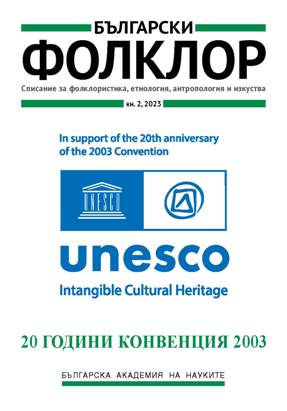
This article examines the process of safeguarding intangible cultural heritage as a factor for sustainable development. It traces and highlights the synergies between intangible cultural heritage and sustainable development. At the same time the author explores the interconnections between the different domains of intangible cultural heritage and the achievement of the Sustainable Development Goals, through the normative documents of the leading international organisations in the field.
More...